What the Role Entails
As an Advanced White Water Safety Tutor you will play a key role in the development of independent paddlers.
You will work with your learners to:
- Raise their safety awareness within advanced water conditions.
- Develop their incident management strategies.
- Avoid problems.
- Creat solutions.
What will you do as an Advanced White Water Safety Tutor?
First of all you will provide AWWS courses, but there is a lot more to the role! for instance:
- Providing your learners with a clear development plan.
- Acting as an ambassador for British Canoeing Awarding Body Qualifications and Paddles Up Training.
- Supporting the continuous personal development of coaches and leaders through safety workshops.
What does the development process look like?
The first step to becoming a AWWS Tutor is to complete an application. If this is accepted, you can then begin to prepare for your orientation course.
To get the most out of the 2 day program we recommend that you have worked through these web pages and fully understand the role, this can and will include observing courses being run by existing tutors. On the orientation itself, you will work alongside other aspirant tutors and one of our National Trainers.
Being a successful provider will involve:
- Being able to coach safety skills to a range of participants, across a range of environments.
- Delivering a wide range of Personal Performance Awards in an advanced water environment.
- Actively coaching and leading in an advanced environment in a kayak.
- Being able to give feedback to your learners and support their development.
- Once qualified, support aspirant providers to progress their provider status.
Being a successful tutor will involve:
- Being excellent at coaching safety skills in a range of craft in a range of different environments,
- Delivering a wide range of Personal Performance Awards in the white water environment.
- Actively coaching and leading in an advanced white water environment.
- Being able to find suitable ways to support your candidates’ own development.
- Once qualified, being able to mentor and support aspirant AWWS tutors.
Maintaining the Role
On becoming an AWWS Tutor, you will be required to follow and agree to the Provider Service Agreement. This includes following the Update Scheme.
You will also be expected to attend a moderation event every 3 years; this is to keep you up to date with, and to share best practice with, other AWWS Tutors.
Want to know more?
Read more about the Advanced White Water Safety course, including the course content and documents.
WHEN CAN I APPLY?
Advanced White Water Safety Tutor applications are taken each April. Successful applicants are then able to book on an Orientation. Whilst applications do not open until April, Orientation events are advertised year round so you can “save the date”.
Minimum Requirements
To become a Advanced White Water Safety Tutor, you must meet the following requirements
| Requirement | Essential | Desirable |
|---|---|---|
| Education, training and qualification | BCAB White Water (Advanced Water) Kayak Coach or White Water (Advanced Water) Canoe Coach or BC/UKCC Level 2 Coach with Advanced White Water Endorsement (Kayak or Canoe) or BCU Level 5 Inland (Kayak or Canoe) and Nationally Recognised Tutoring Qualification (note: applicants who do not have a tutoring qualification will be expected to work towards one and complete within 3 years) |
Progressive and Advanced White Water PPA Provider
Another Coaching or Leadership Advanced White Water Qualification/Award. |
| Experience | Introducing and facilitating development of safety skills to a range of participants in a range of craft in the moderate white water environment.
and Must have delivered the a range of Personal Performance Awards. |
Introducing and facilitating development of safety skills to a range of participants in all of the relevant craft in multiple river locations and environments Experience of mentoring and supporting the development of peers |
| Skills and knowledge | Able to paddle and rescue from a range of white water craft to meet the demonstration needs of the program.
Ability to identify strengths in individuals as well as areas for development. |
Understands and is able to select suitable development mechanisms to provide support |
| Personal attributes | Confident to check and challenge the actions of self and others in a non-confrontational manner Ability to be able to persuade, influence and effectively brief others to generate enthusiasm and common purpose Able to encourage openness and clear communication in others Demonstrates appropriate Values and Attitudes and is able to fulfil a positive role model for British Canoeing Awarding Body, their delivery centre and national association in the public domain |
|
| Other requirements | A well-developed understanding and knowledge of the paddlesport A well-developed knowledge and understanding of the practice and delivery of coaching in paddlesport |
Values and Attitudes
Interpersonal:
Has strong interpersonal skills, the ability to operate as a team player and excellent customer care skills.
Communication:
Is able to communicate effectively with a wide range of people. Is skilled in communicating through various media, has excellent presentation and report-writing skills. Is competent in the language used for assessment.
Integrity:
Is fair and equitable, ethical and honest. Treats people with respect, is candid, and protects confidential information. Adheres to Paddles Up Training policies and demonstrates loyalty to Paddles Up Training and the team. Supports equality of opportunity.
Problem Solving:
Is a clear thinker able to approach tasks in a systematic and logical manner. Has excellent problem solving and analytical skills.
Open Mindedness:
Is able and willing to take and offer advice. Is willing to learn, develop and grow.
Experience:
Has significant and current experience delivering Safety.
Competence:
Has competence in the subject matter of the qualification, and in personal paddling and safety skills.
Judgement:
Has the ability to make accurate judgements about the standard of candidates’ training and assessing skills.
Knowledge and Understanding:
Has sound and current knowledge and understanding in all aspects of the relevant syllabi and all that is involved in delivering the Safety training and assessment.
Commitment:
Is committed to continued professional development to maintain the standards required of the role, including:
- the maintenance of Update Scheme requirements remaining active in the relevant disciplines/environment
- remaining up-to-date with current best practice in all aspects of the relevant Safety Award course content
- being able to demonstrate personal paddling/safety competence in the relevant discipline/environment
- taking part in informal/formal activities that will help ensure their own interpretation of Safety standards and requirements is at the correct level
Further Instructions
Application Process
Applications open in April each year. An 'Apply now' button will appear on all open roles, please read the instructions on the application for application deadlines and offline options.
Orientations will be agreed with successful applicants. Orientations are face to face, typically a day in duration. The up to date orientation fee can be found by looking at the available dates under booking now or by looking at the Paddles Up Training Delivery Centre Fees document Here . There may be additional costs in the case of a final sign off being required.
Development Pathway
To get the most out of your Orientation and your journey to become a tutor, we have prepared a selection of suggestions and recommendations of steps to prepare for the course and support your development. This should not be seen as a tick list or minimum requirement as every aspirant Tutor journey will be different. We recommend you sit down with an experienced Tutor and develop an action plan to support your development.
Tutor Self Analysis
A Tutor needs to understand each of the following areas of planning, delivering and reviewing a course. We recommend you consider each question and ensure you know the answer before your Orientation. It is important to focus your development on those areas you feel you are less familiar with or competent in.
Administration and Organisation of a Course Planning- What are the course staffing requirements? (ratios/roles)
- How do you get course authorisation?
- What are the prerequisites for the course?
- Who will be your course candidates?
- How will you tell them about your courses?
- You may need to consider the costs of the course or what you might charge?
- What are the fees or costs to you of running the course?
- Will you need to hire equipment?
- Is the course being funded by a club, centre or organisation?
- When will you cancel courses? How far in advance?
- How do you warn candidates that a course might be cancelled?
- What happens to things you have paid for if the course is cancelled?
In order for the course to be safe, enjoyable and meet the key outcomes of the training course we need to make some key decisions to ensure we are in the right place at the right time. You may need to know:
On the Bank- Where can you meet and greet your candidates, where can you do an initial briefing? Where will they get changed? Where can they have lunch and where can we do the course close and debrief?
- What are the changing arrangements like for the location? Does the location have a safeguarding policy?
- Does the location have access to refreshments? Is it easy to get food and drink?
- Are we permitted to paddle? What is the water quality like? How deep is the water? How is the venue effected by the weather? Does the venue have everything you need to run the course? Is the equipment near the water? How do we move the equipment to where you need it?
- What other users are there at the location? How might they affect your course? How might we affect them? How do we minimise conflict and help everyone enjoy the environment? Is there anything else we should consider, such as nesting birds?
The course content is detailed and provides a clear list of subjects that must be covered, outside of this core content, every course will be different and we may want to consider:
- How will you tailor a course to a group or environment?
- What might you do differently if all of the candidates were aspirant Sea Kayak Leaders?
- Why might you recommend a longer course duration?
- How might your plan change for candidates under 18?
- What will you do in winter when days are shorter and the weather/ water is colder?
For your Candidates to get the most for our course, you will need to manage the programme well and may need to consider several factors:
- How will you structure the day to make the best of the time we have?
- How will you get the most out of the location?
- How will you ensure your delivery style meets the needs of the candidates?
- How will you ensure activities and practice sessions are safe and effective?
- How will you balance tutor led learning and learner devised learning in your sessions?
You will need to be able to demonstrate and explain a range of techniques from the bank and on/in the water, as well as understand all aspects of the course content and craft. You may also need to consider how you will manage courses where the number of participants is odd? It might be useful to consider how certain techniques will be demonstrated if you are working alone? You may need to consider how you use a second Tutor to get the most out of them.
After the courseWhat end of course procedure do you need to complete? How will you ensure each candidate has an opportunity to talk to you at the end of the course, ask questions and receive personal feedback?
Every course is an opportunity for learning and improving. How will you collect end of course feedback. We can create a positive impact on our future experiences by performing a good post course review. What did you learn today? What can you focus on next time? Who can you discuss your performance with or get support from to make improvements?
Procedures/other supporting policies- Very experienced paddlers might be able to have their experience recognised through Accredited Prior Learning, how will I recognise this? What advice would I give them? How do APL Applications work?
- How will I manage a conflict of interest? How will I recognise that there is a conflict of interest?
- What do I do if a candidate asks for special consideration? What do I do if a candidate asks me about the reasonable adjustment policy? What do I do if a candidate can’t do some of the training?
- What do I do if someone isn’t happy with your course? How can I get support from Paddles Up Training?
Development options
Understanding the pathway to becoming a Tutor.- Decide – do I want to be signed off at orientation or have a development plan and need a final assessed delivery?
- Mentor – who can help me? Who has recently become a Tutor who understands the journey?
- Read – The ‘Tutor role webpages’
- Read - the most up to date Course Content. Has anything changed?
- Observe – do you have access to local Tutors you can go and watch? Can you see more than one Tutor run a course? How do courses change when they are run in different places?
- Consider – where will you run your courses, how will you ensure you have all of the equipment to run a course? How will your courses be different depending on different candidates? Time of year? Temperature? How do we ensure we have the right kit to remain productive during a long cold day on/ in the water?
- Consider – where do you learn best? What locations have worked well in your experience? What locations have not worked and why?
- Get involved – do I have access to groups that would enjoy learning different rescue techniques? Can I co deliver any courses?
- Get some personal coaching – who can help me develop your rescue skills? Could you do a PPA to develop understanding? Who do you know who would be willing to come out and practise with you?
Booking Now
What the Role Entails
As an Advanced White Water Safety Tutor you will play a key role in the development of independent paddlers.
You will work with your learners to:
- Raise their safety awareness within advanced water conditions.
- Develop their incident management strategies.
- Avoid problems.
- Creat solutions.
What will you do as an Advanced White Water Safety Tutor?
First of all you will provide AWWS courses, but there is a lot more to the role! for instance:
- Providing your learners with a clear development plan.
- Acting as an ambassador for British Canoeing Awarding Body Qualifications and Paddles Up Training.
- Supporting the continuous personal development of coaches and leaders through safety workshops.
What does the development process look like?
The first step to becoming a AWWS Tutor is to complete an application. If this is accepted, you can then begin to prepare for your orientation course.
To get the most out of the 2 day program we recommend that you have worked through these web pages and fully understand the role, this can and will include observing courses being run by existing tutors. On the orientation itself, you will work alongside other aspirant tutors and one of our National Trainers.
Being a successful provider will involve:
- Being able to coach safety skills to a range of participants, across a range of environments.
- Delivering a wide range of Personal Performance Awards in an advanced water environment.
- Actively coaching and leading in an advanced environment in a kayak.
- Being able to give feedback to your learners and support their development.
- Once qualified, support aspirant providers to progress their provider status.
Being a successful tutor will involve:
- Being excellent at coaching safety skills in a range of craft in a range of different environments,
- Delivering a wide range of Personal Performance Awards in the white water environment.
- Actively coaching and leading in an advanced white water environment.
- Being able to find suitable ways to support your candidates’ own development.
- Once qualified, being able to mentor and support aspirant AWWS tutors.
Maintaining the Role
On becoming an AWWS Tutor, you will be required to follow and agree to the Provider Service Agreement. This includes following the Update Scheme.
You will also be expected to attend a moderation event every 3 years; this is to keep you up to date with, and to share best practice with, other AWWS Tutors.
Want to know more?
Read more about the Advanced White Water Safety course, including the course content and documents.
WHEN CAN I APPLY?
Advanced White Water Safety Tutor applications are taken each April. Successful applicants are then able to book on an Orientation. Whilst applications do not open until April, Orientation events are advertised year round so you can “save the date”.
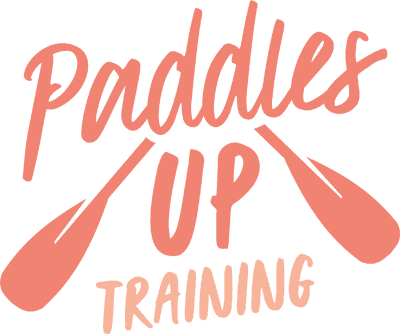
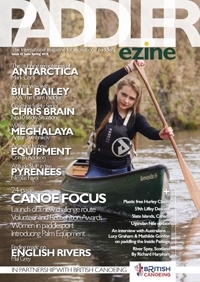
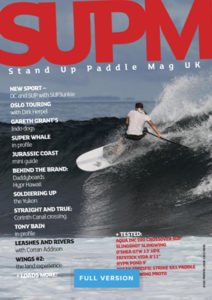
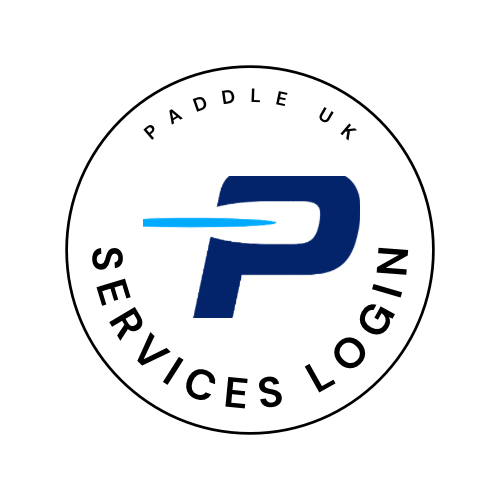
 Go Paddling
Go Paddling Clear Access Clear Waters
Clear Access Clear Waters Paddles Up Training
Paddles Up Training Clubhouse
Clubhouse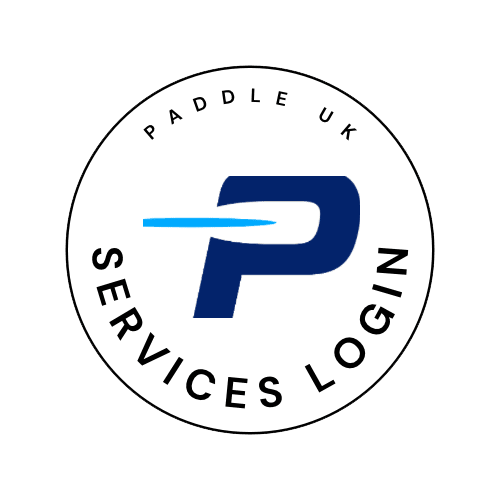 Services Login
Services Login